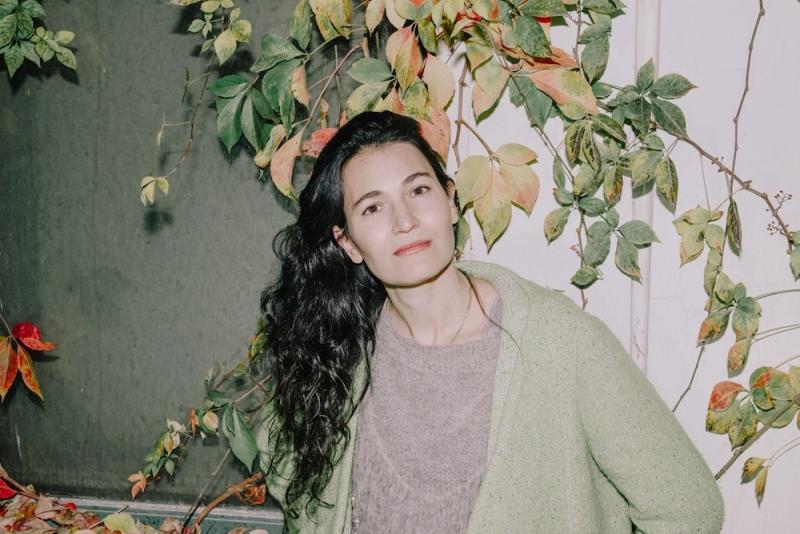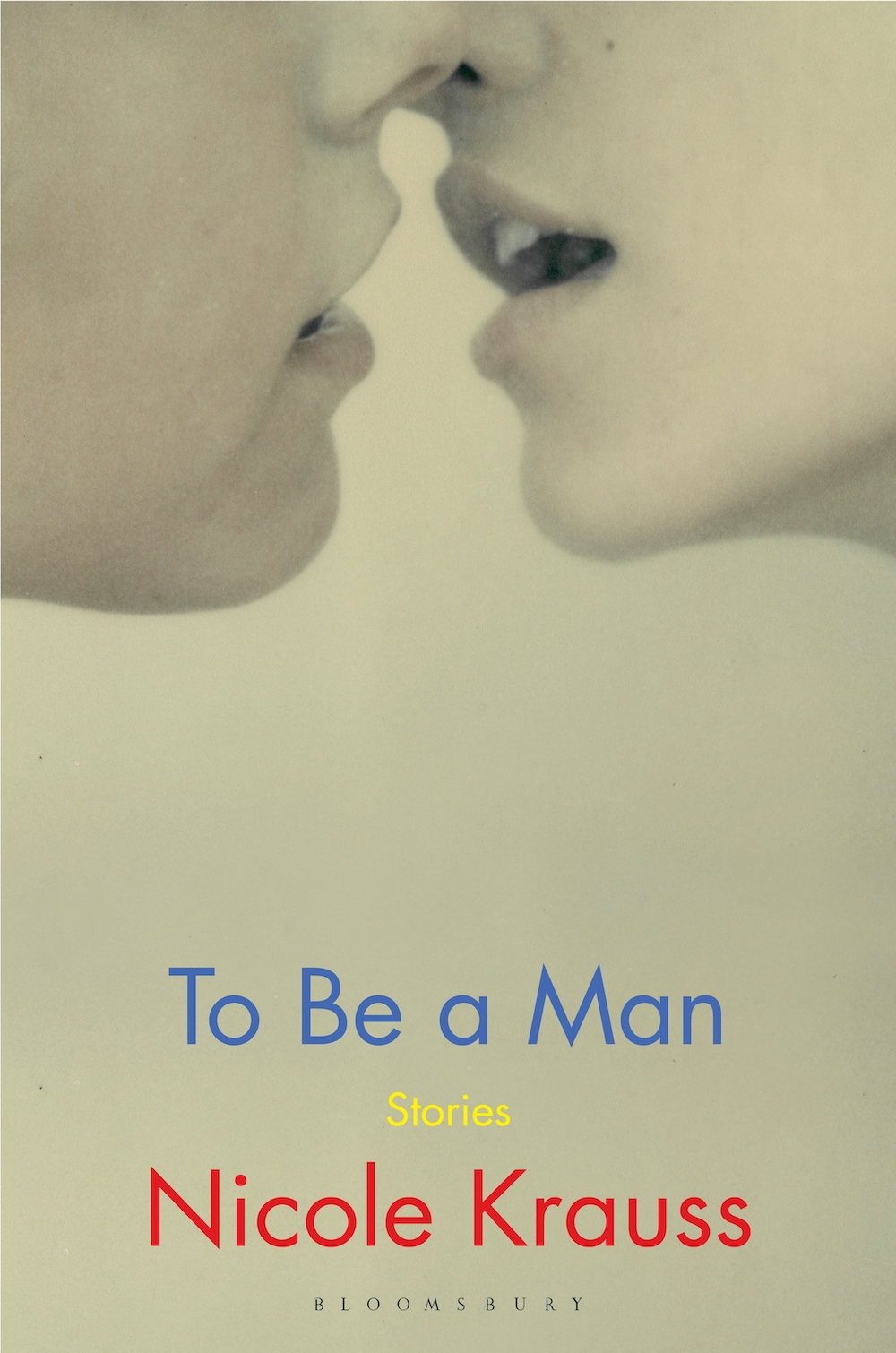Nicole Krauss: To Be a Man review - first short-story collection from the award-winning novelist | reviews, news & interviews
Nicole Krauss: To Be a Man review - first short-story collection from the award-winning novelist
Nicole Krauss: To Be a Man review - first short-story collection from the award-winning novelist
Love, complicity, the burden of the past: ten stories with a wide-ranging focus

Tamar, a character in “The Husband”, one of the most appealing, joyful stories in Nicole Krauss’s new collection To Be a Man, spends summers with her feisty mother in Tel Aviv, leaving her New York apartment in the care of a house sitter.
Existential questions about place and time, with its “reckless authority”, and about Israel and Jewishness as well what it means to be in a relationship, whether as a woman or as a man, recur in To Be a Man, and these ten stories encompass an excitingly wide range of characters, ages (Krauss is very good on teenage girls), tones – often wryly funny - and settings.
Tamar's character has echoes of a woman in Krauss’s brilliant fourth novel, Forest Dark, published in 2017 (To Be a Man is her first short-story collection, and the form seems particularly well suited to her style; parts of her novels are like linked short stories themselves) who also feels a kind of superfluousness at home in New York with her children and husband, though a darker, Murakami-esque quality is at play in the novel.
She feels, when she comes in one afternoon, that “I was already there…I knew I was in the house already,” and that she exists separately and beyond the body that she’s grown up in for 39 years. “Time had sped up, and somehow I, on my way home, had fallen behind.” Similarly, in the story “I am Asleep But My Heart Is Awake”, a woman is staying in her father’s apartment in Tel Aviv a couple of months after his death. She’s never visited the place before – she and her father (and father figures are always important in Krauss's work) were close, but always in their New York habitat. Now she wonders why he never invited her to Israel. She’s filled with longing as she looks at old photos of him in the desert, “as if I too had been there long ago, or as if part of me goes on being there…”
The burden of the past, as in Krauss’s novels, is never far away. In “Zusya on the Roof”, another old-fashioned father, Professor Brodman, compares his adult children’s insouciance over the filial yoke to his own dutiful sufferings. “On his back he carried his mother, with her blue ankles, and his stooped father, and their parents, too, dead in a trench at the edge of a pine forest.” Who might he have been, he wonders, had he not given in to "ancient pressures"?
Ancient pressures sometimes remain only in the imagination. In “To Be A Man”, the final story, there’s a bracing discussion between a man known as the German boxer and his lover over whether he would have been a Nazi. “It’s my weakness for honour and praise,” he tells her, “that would have driven me straight into the ranks of the SS,” an assertion he later partly retracts – and she agrees that their conversation is impossible, “given that whoever he was now would not have been who he’d have been back then, shaped as he would have been by different forces...”
 In “Switzerland”, a thirteen-year-old girl finds freedom away from the parental atmosphere of anxiety and impending doom – “We were European Jews, even in America, which is to say that catastrophic things had happened, and might happen again” – when her father gets a job in Basel. Because her parents won’t countenance the idea of her learning German, “the language of our maternal grandmother, whose entire family had been murdered by the Nazis,” she and her brother are sent to school in Geneva, where she boards at a guest-house with two older, wilder teenage girls, one of whom, Soraya, who is from Paris via Tehran, gets involved in an abusive relationship with an older man.
In “Switzerland”, a thirteen-year-old girl finds freedom away from the parental atmosphere of anxiety and impending doom – “We were European Jews, even in America, which is to say that catastrophic things had happened, and might happen again” – when her father gets a job in Basel. Because her parents won’t countenance the idea of her learning German, “the language of our maternal grandmother, whose entire family had been murdered by the Nazis,” she and her brother are sent to school in Geneva, where she boards at a guest-house with two older, wilder teenage girls, one of whom, Soraya, who is from Paris via Tehran, gets involved in an abusive relationship with an older man.
The thrust of the story is not entirely clear and there’s something unsatisfying about its open-endedness. Soraya’s influence on the narrator is peripheral. But it’s the narrator’s own daughter who has something about her that reminds her unsettlingly, half a lifetime later, of Soraya’s dangerous curiosity in her own power, its reach and limit. There are other stories that are not wholly successful: "Future Emergencies" about wearing gas-masks in New York after 9/11, lacks credibility, and "Amour" set in a dystopian future with Michael Haneke's film as a kind of touch-point, is too mysterious to engage with.
But “End Days” is a beautifully structured, entrancingly real story, where other catastrophic things are happening: Californian wild fires. Noa’s secular, fun-loving parents divorce with their customary verve, inviting both their daughters to the ceremony of the get. Noa’s mother makes conversation with the fat, slovenly scribe while he writes with a large feather. “She would feel the need to make conversation at a beheading, too.”
Afterwards, Noa is left alone in the family house for the summer, working in a florist’s and fielding worried calls about the fires that are raging around LA from her archaeologist father in Israel, where he’s been excavating Megiddo for twenty years, and her mother in Vienna. But Noa refuses to take shelter with her parents' old friends, the Berkowitzes, and doggedly carries on with her job of delivering flowers for a wedding, checking the fires’ progress and losing her virginity to a rabbi’s assistant.
“In The Garden”, an unusual meditation on complicity, set during the military dictatorship in Argentina, has an incantatory tone. “For twenty-one years I served as personal secretary to Latin America’s greatest landscape architect,” repeats the narrator, and you’re never sure if he’s proud of this or not. His arrogant employer tells him that nature is a cruel and conniving affair: the weak are first tormented, then killed, and the strong are nourished by the rot and decay - a fitting metaphor for the great landscape architect’s relationship with the generals and their murderous demands. But, says the narrator, “What I never knew was, what is it to acquiesce to the acquiescent?” - one of the many fascinating questions raised by Krauss in this collection.
rating
Explore topics
Share this article
The future of Arts Journalism
You can stop theartsdesk.com closing!
We urgently need financing to survive. Our fundraising drive has thus far raised £49,000 but we need to reach £100,000 or we will be forced to close. Please contribute here: https://gofund.me/c3f6033d
And if you can forward this information to anyone who might assist, we’d be grateful.

Subscribe to theartsdesk.com
Thank you for continuing to read our work on theartsdesk.com. For unlimited access to every article in its entirety, including our archive of more than 15,000 pieces, we're asking for £5 per month or £40 per year. We feel it's a very good deal, and hope you do too.
To take a subscription now simply click here.
And if you're looking for that extra gift for a friend or family member, why not treat them to a theartsdesk.com gift subscription?
more Books
 'We are bowled over!' Thank you for your messages of love and support
Much-appreciated words of commendation from readers and the cultural community
'We are bowled over!' Thank you for your messages of love and support
Much-appreciated words of commendation from readers and the cultural community
 Elizabeth Alker: Everything We Do is Music review - Prokofiev goes pop
A compelling journey into a surprising musical kinship
Elizabeth Alker: Everything We Do is Music review - Prokofiev goes pop
A compelling journey into a surprising musical kinship
 Natalia Ginzburg: The City and the House review - a dying art
Dick Davis renders this analogue love-letter in polyphonic English
Natalia Ginzburg: The City and the House review - a dying art
Dick Davis renders this analogue love-letter in polyphonic English
 Tom Raworth: Cancer review - truthfulness
A 'lost' book reconfirms Raworth’s legacy as one of the great lyric poets
Tom Raworth: Cancer review - truthfulness
A 'lost' book reconfirms Raworth’s legacy as one of the great lyric poets
 Ian Leslie: John and Paul - A Love Story in Songs review - help!
Ian Leslie loses himself in amateur psychology, and fatally misreads The Beatles
Ian Leslie: John and Paul - A Love Story in Songs review - help!
Ian Leslie loses himself in amateur psychology, and fatally misreads The Beatles
 Samuel Arbesman: The Magic of Code review - the spark ages
A wide-eyed take on our digital world can’t quite dispel the dangers
Samuel Arbesman: The Magic of Code review - the spark ages
A wide-eyed take on our digital world can’t quite dispel the dangers
 Zsuzsanna Gahse: Mountainish review - seeking refuge
Notes on danger and dialogue in the shadow of the Swiss Alps
Zsuzsanna Gahse: Mountainish review - seeking refuge
Notes on danger and dialogue in the shadow of the Swiss Alps
 Patrick McGilligan: Woody Allen - A Travesty of a Mockery of a Sham review - New York stories
Fair-minded Woody Allen biography covers all bases
Patrick McGilligan: Woody Allen - A Travesty of a Mockery of a Sham review - New York stories
Fair-minded Woody Allen biography covers all bases
 Howard Amos: Russia Starts Here review - East meets West, via the Pskov region
A journalist looks beyond borders in this searching account of the Russian mind
Howard Amos: Russia Starts Here review - East meets West, via the Pskov region
A journalist looks beyond borders in this searching account of the Russian mind
 Henry Gee: The Decline and Fall of the Human Empire - Why Our Species is on the Edge of Extinction review - survival instincts
A science writer looks to the stars for a way to dodge our impending doom
Henry Gee: The Decline and Fall of the Human Empire - Why Our Species is on the Edge of Extinction review - survival instincts
A science writer looks to the stars for a way to dodge our impending doom
 Jonathan Buckley: One Boat review - a shore thing
Buckley’s 13th novel is a powerful reflection on intimacy and grief
Jonathan Buckley: One Boat review - a shore thing
Buckley’s 13th novel is a powerful reflection on intimacy and grief
 Help to give theartsdesk a future!
Support our GoFundMe appeal
Help to give theartsdesk a future!
Support our GoFundMe appeal

Add comment